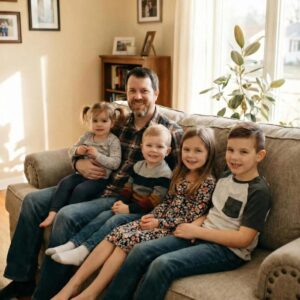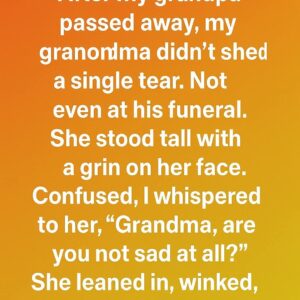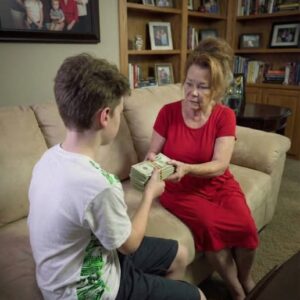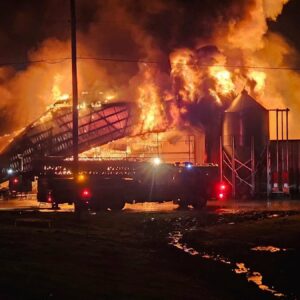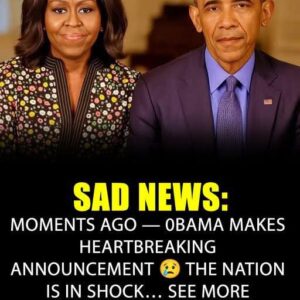The rain had just stopped when the call came in. It was Frank Pearson, a funeral director I’d known for years. His voice cracked as he explained the situation—there was a little boy in his chapel, lying in a white coffin, and nobody had come. Nobody was coming.
The child’s name was Tommy Brennan. He was only ten years old, taken too soon by leukemia after three years of brutal treatments. His grandmother had been his only constant visitor, but she had suffered a massive heart attack the day before the funeral and was clinging to life in the ICU. His father was Marcus Brennan, a name that carried weight and fear. Marcus had been sentenced to life without parole for killing three people during a drug deal gone wrong. The press had branded him a monster, and the stigma stuck to his son like a curse.
Child services claimed they had done their part. The foster family washed their hands of the responsibility. Even the church refused to be involved, unwilling to be associated with the son of a convicted murderer. Tommy’s final days had been filled with questions—“Does my dad still love me?”—but no answers. And now, even in death, the world was ready to throw him away, to bury him in a potter’s field with nothing but a number for a headstone.
Frank asked me if I could bring a few men to serve as pallbearers. He just wanted witnesses, someone to stand by while this boy was lowered into the ground. But the moment he told me the story, I knew this would not be small. This would be something bigger.
I rode to the clubhouse, blew the air horn, and within minutes nearly forty Nomad Riders stood in front of me. “Brothers,” I said, “there’s a boy about to be buried alone because of who his father is. Ten years old. Cancer took him. No family, no friends, no one. I’m going to his funeral. This isn’t club business—but if you believe no child should go into the ground alone, meet me at Peaceful Pines in ninety minutes.”
The room fell silent. Old Bear spoke first: “My grandson’s ten.” Hammer added, “Mine too.” Whiskey’s voice cracked as he muttered, “My boy would’ve been ten, if that drunk driver hadn’t…” He didn’t finish. But he didn’t need to. Big Mike, our president, stood and said, “Call every club. This isn’t about territory or patches. This is about a kid.”
The calls went out, and the response stunned us all. Clubs that hadn’t spoken in years. Clubs with rivalries and blood feuds. Screaming Eagles, Iron Horsemen, Devil’s Disciples—they all said the same thing: “We’ll be there.”
By the time I reached the funeral home, Frank was pacing outside, pale and shaken. He started to explain, but the rumble of engines cut him off. First the Nomads, more than forty strong. Then the Eagles, fifty. The Horsemen brought thirty-five. The Disciples, another twenty-eight. By the end, more than three hundred motorcycles filled every street around Peaceful Pines.
Inside the chapel, the scene was heartbreakingly small. A tiny white coffin, a single bouquet of supermarket flowers—the kind a nurse might pick up at the last minute. “That’s all?” one of the men asked. Frank nodded. “The hospital sent them. Standard procedure.” Someone growled, “Forget standard procedure.”
Then the bikers began filing past the coffin. Rough men with leather vests and scarred hands, laying down teddy bears, toy motorcycles, and flowers. One even draped a child-sized vest patched “Honorary Rider.” And then Tombstone, an old vet, placed a photo of his own boy on the coffin. “My son Jeremy was your age when leukemia took him,” he said softly. “I couldn’t save him, Tommy. But you’re not alone now. Jeremy will show you around up there.”
That broke us. Men who’d survived wars, prison, and streets full of violence stood with tears streaming down their faces for a boy they never knew.
Then Frank’s phone rang. He came back into the chapel pale as a ghost. “It’s the prison. Marcus Brennan found out about his son’s death. He’s on suicide watch. He wants to know if anyone showed up.”
The room went still. Big Mike took the phone and put it on speaker. “Marcus Brennan,” he said. “This is Michael Watson, president of the Nomad Riders. I’m here with three hundred and twelve bikers from seventeen clubs. We’re here for Tommy.”
The line filled with sobs. Marcus choked out, “He loved motorcycles… had a toy Harley he slept with. Said he wanted to ride one day.”
“He will,” Big Mike said firmly. “Every run, every Memorial Day, every charity ride—we’ll carry him with us. That’s a promise.”
Marcus poured out his grief, telling stories about Tommy’s first steps, his love for dinosaurs, his bravery during treatment. He apologized over and over, confessing he didn’t deserve forgiveness. When he said, “I should die knowing I failed him,” Snake cut in. “No. You live. You live because three hundred men showed up for your boy. You live because he mattered. Don’t dishonor him by giving up.”
Old Bear added, “Use this. Tell the other fathers in there what it costs. Stop them from becoming you.”
Marcus was silent for a long time before whispering, “Will you bury him right?”
I said, “Your son will have the funeral of a warrior.”
And so we carried Tommy to his grave. Six bikers from six different clubs bore the coffin, and three hundred more followed, engines rumbling like thunder. At the graveside, Chaplain Tom from the Christian Riders spoke simply: “Tommy Brennan was loved. By his father, his grandmother, and today, by everyone here. Love transcends prison walls. Love transcends death.”
As the coffin was lowered, engines roared together, a sound so powerful it surely reached the prison miles away.
The story could have ended there—but it didn’t. Marcus didn’t kill himself. Instead, he started a program in prison called Letters to My Child, helping inmates reconnect with their kids. Within months, it spread to twelve prisons. Tommy’s grandmother recovered and now rides with us, wearing a vest stitched with “Tommy’s Grandma.” She bakes cookies for every run.
Tommy’s grave is never empty. Bikers stop by daily, leaving toys, flowers, patches. The groundskeeper says it’s the most visited grave in the cemetery. A little boy the world was ready to forget now has more family than most men alive.
Every ride, every thunder of engines, I swear I can feel him. Little Tommy Brennan, finally on that motorcycle he dreamed about, riding forever with brothers who never met him but chose to claim him anyway.
Because some things matter more than blood, more than past mistakes. And no child—no matter who his father is—should ever go into the ground alone.
